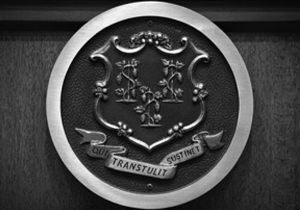
What is “Grassroots”?
- Grassroots is short for “grassroots lobbying”, “grassroots campaign”, or “grassroots programs.”
- Essentially, grassroots lobbying is an organized effort by a company, institution or organization to recruit and deploy political power from constituencies both within and outside the organization.
- It is the act of identifying, contacting, educating, empowering and mobilizing constituent groups to effectively lobby legislative opinions and actions on issues of importance to the organization.
- From a lawmaker’s perspective: Constituent Groups = Voters Back Home (VBH). And, VBH = VIP. You’ve heard the saying, “The squeaky wheel gets oiled.” In politics, the function of a grassroots campaign is to provide the “squeak”, and sometimes even the oil.
Key Contacts are Key to Success.
- There are numerous elements that are key to a successful grassroots campaign, but one is absolutely essential – having a team of key contacts, acting as public affairs consultants, who are committed to the cause. Individuals who care about public affairs, their own futures, the future of the organization’s membership, and the future of the organization’s clients.
- It is imperative that the team be highly motivated, well trained, credible and have a clear understanding of the legislative and political process.
- Often times you will be the first and last point of contact between elected officials and your organization, so it is critical that as a public affair consultant or liaison, you communicate your message clearly and accurately, and respond expeditiously.
- It is estimated that white collar professionals spend an average of 43 percent of their time in meetings and on the telephone. You can only imagine what the elected official’s schedule looks like!!
- The point is, you don’t need to tell people everything you know to communicate effectively. Persuade them with the facts and convey the facts in an accurate, polite, concise manner that appeals to their self-interest.
- And last but not least, always ASK FOR THEIR VOTE!
Goals of a Successful Grassroots Campaign
- Communicate Message
- Know your issue
- Keep it brief (3 points/3 minutes)
- How do lawmakers/their constituents stand to benefit from supporting your position
- Build Relationship
- Know your audience (key staffers/state lawmakers, members of the CT Congressional delegation)
- Establish a rapport
- Be considerate, sincere
- Establish Trust
- Make sure your information is accurate and up-to-date
- If you don’t have an answer don’t fudge it; tell them you will get back to them with the information ASAP
- Follow up in a timely manner
- Get the Vote. Get the Vote. Get the Vote.
Reaching Target Audience
- How Lawmakers Receive Information
- Person to Person Contact
- By Mail
- By Telephone
- By Fax
- By E-Mail
- Meetings with Constituents
- Through Lobbyists
- From Testimony
Most Effective Communication
- Activities Ranked Most Effective by Congressional Staffers
- Grassroots Activism 60 %
- Executive Lobbying 28 %
- PAC Contributions 5 %
- Professional Lobbying 4 %
- Advocacy Advertising 2 %
Communication Tips
- E-mailing Lawmakers – Hints for communication by E-mail
When sending an e-mail to your state lawmaker, a member of the Connecticut Congressional delegation, or their staff, follow these helpful hints:- Identify yourself and reference any previous correspondence or contact you may have had with their office (e.g. dates you called or sent a letter and subject of communication)
- Keep it brief (3 points); staffers get inundated with e-mail
- If your organization has developed some kind of legislative alert with additional background information, you can attach it to the e-mail.
- Always ask for their support.
- Put a return receipt on the e-mail so you know it was received and when.
- Telephoning Lawmakers – Hints for Communicating by Telephone
When placing a call to your state lawmaker, a member of the Connecticut Congressional delegation, or their staff follow these helpful hints:- Ask for the legislator by name.
- Identify yourself and reference any previous correspondence you may have sent on the subject to help jog their memory.
- Let them know your organization’s views
- Ask for their support
- When talking to a staff member:
- Identify yourself.
- Leave a clear, complete message.
- Faxing/Writing Lawmakers – Hints for communication by Mail/FAX
When corresponding by mail or Fax, follow these helpful hints:- Type on your business Letterhead.
- Be sure your return address, phone number and e-mail (if available) are on the correspondence.
- Identify your subject clearly.
- State your organization’s position succinctly and in a positive manner; avoid threats.
- Ask your state lawmaker or Connecticut Congressional representative for a response regarding his/her position.
- Thank your legislator.


